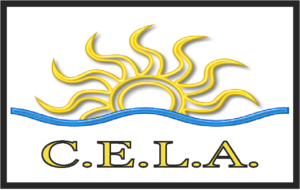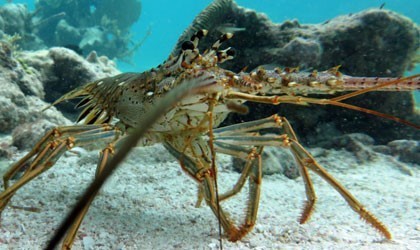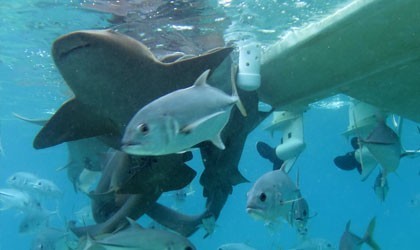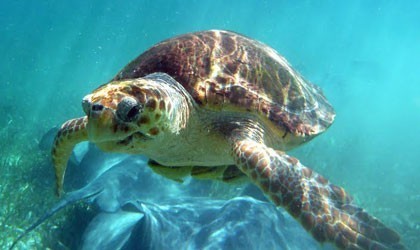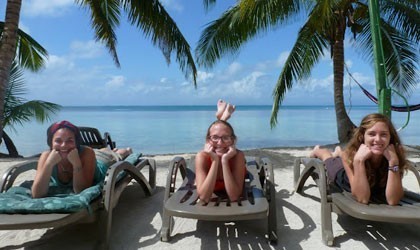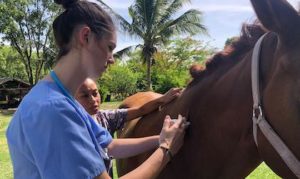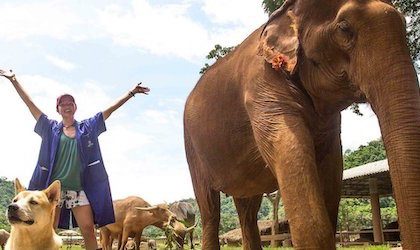TROPICAL MARINE ECOLOGY AND CONSERVATION
Tropical Marine Ecology and Conservation is an intensive, experiential coral reef ecology course that covers a ten-day timeframe and includes classroom, field and laboratory components. Field work will be mainly snorkeling and exploring the marine ecology underneath. As much as eight hours per day will be spent at sea. This is a very physical course. Students should be prepared for rigorous activity with a lot of sun exposure.
TAKE YOUR FINAL EXAM IN MARINE ECOLOGY LYING IN A HAMMOCK BY THE CARIBBEAN SEA.
The focus of this course is to learn the key biotic and abiotic components of a coral reef system and how they interact. Students will come to understand the worldwide importance of coral reefs as well as their “canary in a coal mine” status. The course explores the current state of the Belize Barrier Reef east of Ambergris Caye and south to Caye Caulker. The biological and ecological history of this reef system will be used to inform attempts to predict its future under varied management strategies. Our local findings will be theoretically applied to all coral reef systems. We will also explore anthropogenic activities that have positive and negative impacts on our marine ecology and these ecosystems in general. Lectures will encompass uninformed human activities locally and globally that can be addressed to achieve a more positive outcome for coral reefs.
Belize’s Barrier Reef is a series of coral reefs straddling the coast of Belize. The Belize Barrier Reef is a 300 kilometers long section of the 900 kilometers long Mesoamerican Barrier Reef System. It is the second largest coral reef system in the world after the Great Barrier Reef in Australia and is popular for scuba diving and snorkeling.
The Belize Barrier Reef is home to a large diversity of plants and animals and is one of the most diverse ecosystems of the world. It is comprised of 70 hard coral species, 36 soft coral species, 500 species of fish, and hundreds of invertebrate species. With 90% of the reef still needing to be researched, it is estimated that only 10% of all species have been discovered.
PROGRAM DATES
January 2024
January 1- January 10, 2024
Summer 2024
June 8 – June 19, 2024
PROGRAM TUITION
Tuition
Program tuition is $3,180, not including international airfare.
Interest-free payment plans are available. Current college students may be able to use federal financial aid toward their tuition.
The first $500 of your tuition (your program deposit) holds your space in the course. This deposit is non-refundable. All prices are in US dollars.
Want to stay for a whole month? Combine 2 courses!
Tuition for 2 programs is $6,360 Only $5900 – SAVE $460 on your month of adventures in Belize!
Included:
- Course
- Housing
- Airport pickup
- Class excursions
- All meals
- Orientation
Not included:
- $30 Application fee
- Transcript
- Personal budget for meals, tours, laundry, evening activities, souvenirs, etc
- Airfare
- Medical insurance (required)
MORE ANIMAL SCIENCE CLASSES
Why not join us for a whole month in the tropics?
SCHOLARSHIP AND FUNDING IDEAS
Want to study abroad but not sure if you can afford it? You are not alone! While studying abroad gives you an appreciation for the world outside of your home country, grows your character and confidence, and gives you great opportunities, many still worry about paying off student debt in the future. Thankfully, you can pursue a couple of options that may make that trip of a lifetime a little bit more affordable.
Crowdfunding

